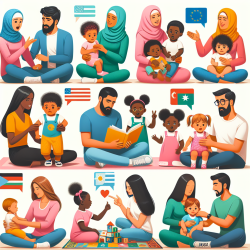Introduction
In the wake of the COVID-19 pandemic, the necessity for adaptable mental health interventions has become more apparent than ever. A recent study, "Piloting a community-based psychosocial group intervention designed to reduce distress among conflict-affected adults in Colombia," highlights innovative approaches to delivering psychosocial support in challenging contexts. This study offers valuable insights for practitioners aiming to enhance their therapeutic strategies, particularly through remote and hybrid modalities.
Understanding the Study
Conducted in Quibdó, Colombia, the study evaluated the effectiveness of a community-based psychosocial support group intervention across three modalities: in-person, remote, and hybrid. The intervention aimed to alleviate symptoms of generalized distress, anxiety, depression, and posttraumatic stress among conflict-affected adults. With 39 participants, the study employed a mixed-method approach, combining quantitative and qualitative data to assess the intervention's feasibility and outcomes.
Key Findings
The study revealed significant improvements in participants' wellbeing and a reduction in distress symptoms across all modalities. However, each modality presented unique challenges and benefits:
- In-person: Participants appreciated the social support and cohesion but faced logistical challenges such as transportation and safety concerns.
- Remote: This modality offered flexibility and reduced exposure to community violence, though it was hindered by connectivity issues and limited opportunities for social interaction.
- Hybrid: Combining the strengths of both modalities, hybrid sessions provided a balanced approach, though participants favored in-person interactions for deeper engagement.
Implications for Practitioners
The study underscores the potential of remote and hybrid modalities in delivering effective psychosocial support, especially in resource-limited settings. Practitioners can draw on these findings to enhance their interventions by:
- Emphasizing the importance of cultural adaptation and community involvement to increase engagement and acceptance.
- Leveraging technology to overcome geographical and logistical barriers, while ensuring privacy and confidentiality.
- Incorporating flexible scheduling and diverse delivery options to cater to participants' varying needs and preferences.
Encouraging Further Research
While the study provides promising evidence, further research is needed to refine these modalities and address potential risks, such as reduced social support in remote settings. Practitioners are encouraged to contribute to this growing field by exploring innovative strategies and sharing their findings.
To read the original research paper, please follow this link: Piloting a community-based psychosocial group intervention designed to reduce distress among conflict-affected adults in Colombia: a mixed-method study of remote, hybrid, and in-person modalities during the COVID-19 pandemic.










